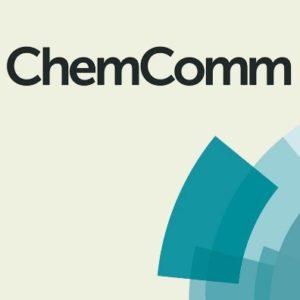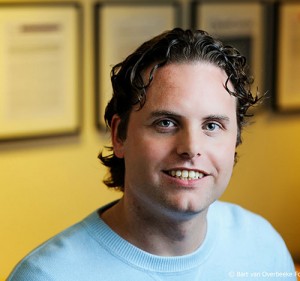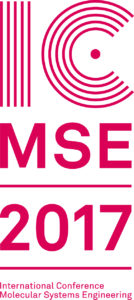On behalf of the ChemComm Editorial Board, we are delighted to announce Elizabeth New from the University of Sydney, Australia, as the winner of the 2017 ChemComm Emerging Investigator Lectureship – congratulations, Liz!
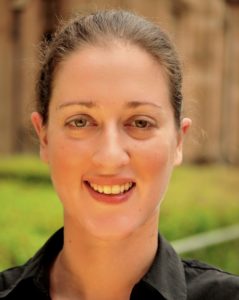
Elizabeth New
Liz finished her BSc (Advanced, Hons 1 and Medal) and MSc in Chemistry at the University of Sydney before embarking on a PhD programme at Durham University, UK, working with Professor David Parker. After being awarded her PhD in Chemistry in January, 2010, she was a Royal Commission for the Exhibition of 1851 Postdoctoral Fellow at the University of California at Berkeley within the group of Professor Christopher Chang. She then returned to the University of Sydney as an ARC DECRA Fellow to start her independent research career in 2012, establishing herself at the cutting-edge of molecular imaging and developing novel chemical imaging tools to supplement existing imaging platforms.
She developed the first set of reversible sensors for cellular redox environment containing flavins as the sensing group, including the first examples of ratiometric reversible cytoplasmic sensing, reversible mitochondrial sensing, and ratiometric mitochondrial sensing. She has also developed the first fluorescent sensor for a platinum metabolite, enabling the unprecedented visualisation of cisplatin metabolism, and a subsequent sensor to study the metabolism of transplatin analogues. Her research group is one of the very few in the world to be investigating cobalt complexes as responsive magnetic resonance contrast agents, and she has developed new methods for ratiometric fluorescent sensing, as well as new strategies to control subcellular targeting. Her research excellence has been recognised by a number of awards, among them the NSW Early Career Researcher of the Year (2016) and the Asian Biological Inorganic Chemistry Early Career Researcher Award (2014).
Passionate about communicating science, she has spoken about her research to high school students (as the Royal Australian Chemical Institute (RACI) Nyholm Youth Lecturer, 2014-5, and the RACI Tasmanian Youth Lecturer, 2017), to the general public (as a NSW Young Tall Poppy Awardee, 2015), and to politicians and policy-makers (as elected executive member of the Australian Academy of Science’s Early-Mid Career Researcher Forum). She is currently a Senior Lecturer and Westpac Research Fellow in the School of Chemistry at the University of Sydney, where her group continues to focus on the development of molecular probes for the study of biological systems.
As part of the Lectureship, Elizabeth will present a lecture at three locations over the coming year, with at least one of these events taking place at an international conference, where she will be formally presented with her Emerging Investigator Lectureship certificate. Details of her lectures will be announced in due course – keep an eye on the blog for details.
Read these articles by Elizabeth New:
A cobalt(II) complex with unique paraSHIFT responses to anion
E. S. O’Neill, J. L. Kolanowski, P. D. Bonnitcha and E. J. New
Chem. Commun., 2017, 53, 3571-3574
DOI: 10.1039/C7CC00619E, Communication
On the outside looking in: redefining the role of analytical chemistry in the biosciences
Dominic J. Hare and Elizabeth J. New
Chem. Commun., 2016, 52, 8918-8934
DOI: 10.1039/C6CC00128A, Feature Article
From themed collection 2016 Emerging Investigators
Fluorescent sensing of monofunctional platinum species
Clara Shen, Benjamin D. W. Harris, Lucy J. Dawson, Kellie A. Charles, Trevor W. Hambley and Elizabeth J. New
Chem. Commun., 2015, 51, 6312-6314
DOI: 10.1039/C4CC08077G, Communication, Open Access
Imaging metals in biology: balancing sensitivity, selectivity and spatial resolution
Dominic J. Hare, Elizabeth J. New, Martin D. de Jonge and Gawain McColl
Chem. Soc. Rev., 2015, 44, 5941-5958
DOI: 10.1039/C5CS00055F, Tutorial Review, Open Access
A FRET-based ratiometric redox probe for detecting oxidative stress by confocal microscopy, FLIM and flow cytometry
Amandeep Kaur, Mohammad A. Haghighatbin, Conor F. Hogan and Elizabeth J. New
Chem. Commun., 2015, 51, 10510-10513
DOI: 10.1039/C5CC03394B, Communication
The annual ChemComm Emerging Investigator Lectureship recognises emerging scientists in the early stages of their independent academic career. Nominations for the 2018 Emerging Investigator Lectureship will open later in the year – keep an eye on the blog for details, and read more about our previous winners.
2016: Ang Li from the Shanghai Institute of Organic Chemistry, China
2015: Deanne D’Alessandro from the University of Sydney, Australia
Yong Sheng Zhao from the Beijing National Laboratory for Molecular Sciences, China
2014: Xinliang Feng from the Max Planck Institute for Polymer Research, Germany
2014: Tomislav Friščić from McGill University, Canada
2014: Simon M. Humphrey from the University of Texas at Austin, USA
2013: Louise A. Berben from the University of California at Davis, USA
2013: Marina Kuimova from Imperial College London, UK
2012: Hiromitsu Maeda from Ritsumeikan University, Japan
2011: Scott Dalgarno from Heriot-Watt University, Edinburgh, UK
Also of interest: You can read the 2016 ChemComm Emerging Investigators Issue which highlights research from outstanding up-and-coming scientists and watch out for our 2017 Emerging Investigators issue – coming very soon. You can also take a look at our previous Emerging Investigator issues in 2011, 2012, 2013, 2014 and 2015.


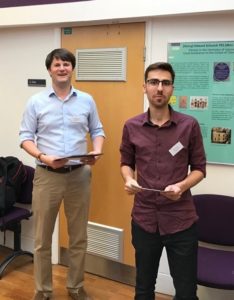









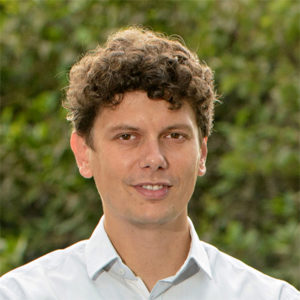
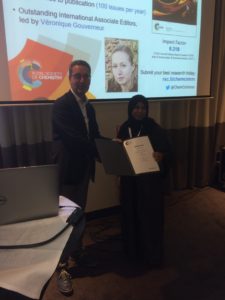
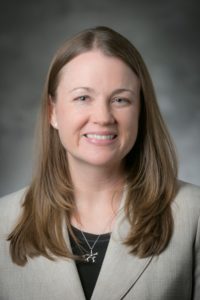
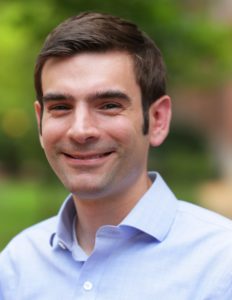
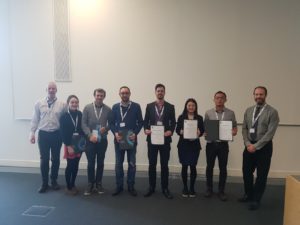
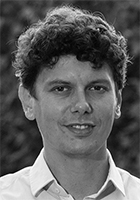 Dr. Rafal Klajn
Dr. Rafal Klajn
